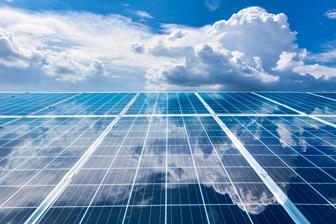Projected Top 10 Sustainability Careers for 2025
Pursuing a clean energy career in solar, wind, water, or other renewable energy sectors offers not only strong job prospects but also the chance to help combat climate change and protect the environment.
Explore ten impactful roles in clean energy, with salary and job growth insights from the Bureau of Labor Statistics (BLS) and ONET:
- Wind Turbine Service Technician
Projected growth by 2031: 40% (much faster than average)
Technicians install, maintain, and repair wind turbines, ensuring systems work efficiently. Duties include climbing towers, troubleshooting, and collecting performance data for analysis. - Solar Photovoltaic (PV) Installer
Projected growth by 2031: 26% (much faster than average)
PV installers set up rooftop solar panels, connect them to electrical systems, test operations, and perform maintenance for homes and businesses. - Sustainability Specialist
Projected growth by 2031: 7.5% (average)
Sustainability specialists design and implement eco-friendly strategies, monitor resource use, and develop outreach materials to support green initiatives. - Environmental Scientist
Projected growth by 2031: 5% (average)
These scientists study and address environmental issues like pollution. They collect samples, develop remediation plans, and advise on policy solutions. - Urban Planner
Projected growth by 2031: 4% (average)
Urban planners create sustainable land use plans, analyze data, and work with officials to revitalize communities while balancing social, economic, and environmental needs. - Environmental Engineer
Projected growth by 2031: 4% (average)
Engineers design solutions for environmental challenges, improve waste management systems, and oversee remediation projects for cleaner air, water, and soil. - Hydrologist
Projected growth by 2031: Little or no change
Hydrologists study water systems and develop strategies to address challenges like drought, pollution, and erosion, often supporting hydropower and wastewater projects. - Electronics Engineer
Projected growth by 2031: 6% (average)
Electronics engineers develop and refine systems for electric vehicles and other green technologies, ensuring safety and functionality of emerging innovations. - Environmental Science and Protection Technician
Projected growth by 2031: 6% (average)
Technicians investigate pollution sources, collect samples, and inspect facilities for compliance with environmental regulations to protect health and safety. - Air Quality Engineer
Projected growth by 2031: 4% (average)
Specializing in reducing air pollution, air quality engineers use modeling and analysis to design solutions for cleaner indoor and outdoor air.
This rewording maintains the core information but condenses the job descriptions for quicker reading.
